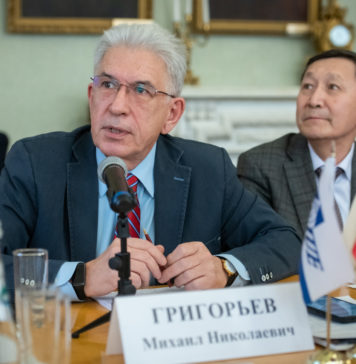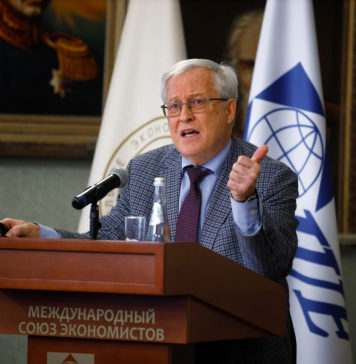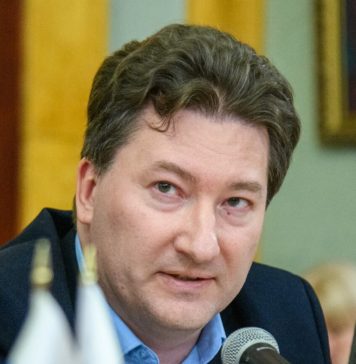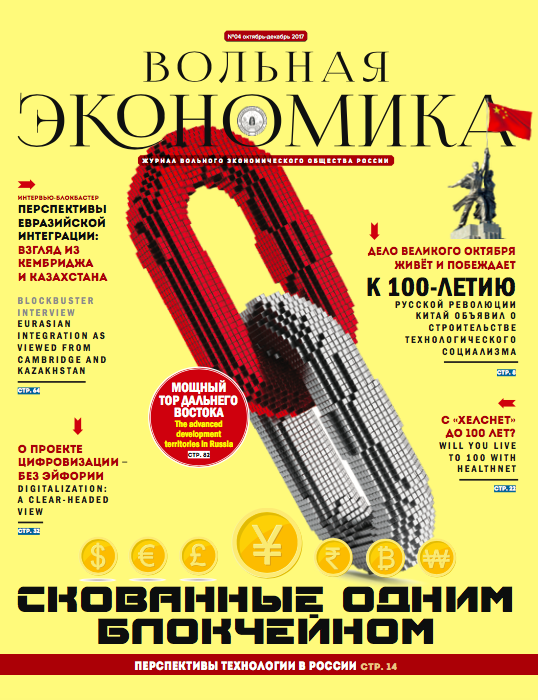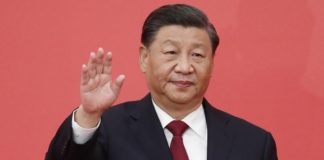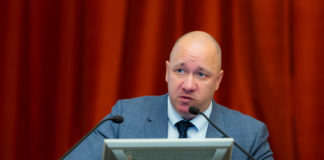 Sergey Bodrunov,
Sergey Bodrunov,
President of the VEO of Russia, President of the International Union of Economists,
director of the Institute of the New Industrial Development, expert of the Russian Academy of Sciences, professor
In Russia, unfortunately, it’s not common knowledge that even a quarter of a century after the collapse of “real socialism” Marx remains the most famous, most quoted, and most criticized and revered thinker among the world’s intellectual elite. The 200th anniversary of Marx’s birth, which was celebrated earlier this year, caused a wide resonance in various countries of the world, from Germany to China. The Free Economic Society of Russia, which I have the honor to head, held a Memorial for Marx, which included a series of scientific conferences, publication of books and articles in the media, exhibitions, panel discussions, both in Russia and in a number of other countries, during which distinguished intellectuals and leading experts (economists, historians, sociologists, philosophers, social scientists, art and culture figures) once again examined Karl Marx’s legacy from contemporary point of view, assessing it based on contemporary knowledge. Lomonosov Moscow State University and the VEO held an International Forum that brought together more than 800 participants from every continent. The words of the Rector of the Moscow State University Academician A. Sadovnichy to the effect that “while Marxism has no monopoly on the truth, it is impossible not to study it and not to teach it” spoken at the opening of the distinguished assembly came as quite a surprise for many an important person in attendance.
But there’s the other side of the medal. Few of the great intellectual figures of the past invite such detailed scrutiny or draw such harsh criticism as Marx.
The reasons for this are obvious.
On the one hand, the practices that are associated with Marx and that were implemented seemingly under the banner of Marxism, have been seemingly proven to be dead-end and even dangerous.
On the other hand, Marx’s theoretical work in the field of philosophy, economic and social theory, and political science has been directly associated with the ideologemes and recommendations that have been largely rejected by the modern economic, political and intellectual establishment. Why, then, the memory of Marx has persisted for a century and a half? And not only in the minds of scholars. It lives on in a variety of forms: from significant artistic expressions (such as, for example, the new monument to Marx in his home town, Trier, inaugurated in this May) to portraits on t-shirts which sell as well as portraits of Hollywood stars.
The answer, in my opinion, lies in the specifics of both the social practices implemented based on various interpretations of Marx, which were far from being adequate to the essence of true Marxism, and the cultural trends of modern history and modernity.
As for the former (and I prefer to focus primarily on the material aspect of the problem), during the last century and a half, the technological and economic development, having disproved some of Marx’s contentions (in particular as regards his predictions of the collapse of the capitalist system as part of the rapid shift in social order), did simultaneously confirm his predictions of global development trends.
The latter primarily concerns the laws governing the development of technologies and material production. More than 150 years ago Marx substantiated the evolution of industrial production towards gradual replacement of man, transfer of routine functions to the machine, and the ultimate automation of production, and now it turns out he was mostly right. Unevenly, zigzagging between progress and regression, mankind has been approaching what today is called the fourth industrial revolution. And it has gotten there! Mankind has reached the stage of which yours truly and the Institute of New Industrial Development have been talking for three decades in a row.
What have we been talking about? We’ve been talking about the emergence of a production system where man would act as a “controller and regulator” (a direct quote from Marx!), where knowledge is an essential element, where industry plays a crucial role by transforming itself into a series of “smart” robotic industries. This new quality of technologies leads to the emergence of the new industrial society of the second generation, which is a dialectical evolution of the main features of the new industrial society of the past, Twentieth, century as described by the prominent US economist John Galbraith, and which defeats the postindustrial illusions of the recent past.
This serves as a basis for the upcoming new social reality, noonomy, in which new technologies will create prerequisites for removing the current contradictions of financialization, simulative consumption, and utilitarian attitude toward the environment. We have a chance to build a society where knowledge and human development will serve as a priority and a foundation of a new social order with non-economic methods of managing and meeting the needs of the individual and the society as a whole.
Without delving deep into these theoretical issues, which are difficult to follow by ear, I will allow myself to formulate a certain forecast.
The Marx of today, the “anti-hero” (at least in the eyes of many intellectuals, both in Russia and abroad), will be gradually emerging as not so much a symbol of civil wars and gulags he did not anticipate, but rather as a thinker who was not afraid to formulate the most fundamental challenges of humanity.
The image will not be glossy. A thinker is primarily an object for criticism to any other intellectual. That is the rule. And it’s all right. Everybody knows: the more you’re criticized and the smarter your critics are, the more good it will do to your ideas, the stronger their foundations will be. I believe this approach of intellectual criticism will continue to be applied in relation to Marx.
But criticism does not negate the essence of Marxism or Marx’s global ideas, his methods of studying reality, his systemic view of the development of civilization or his global predictions.
Marx should remain in the intellectual piggybank of humanity .
This we must realize. And, as with every great achievement of social thought, we must compare our ideas and concepts against Marx’s, not as someone who has a “monopoly on the truth”, no! — but as a traveler checks his position against a star chart.
However, to do this we must relinquish two sad traditions of the last decades: the blind exaltation of Marx and the indiscriminate blasphemy of him. The future Marx will not appear as an official portrait set in a gilded frame or as a vulgar caricature, he will make his appearance in the real “works of the mind” in which the contradictions of both Marx himself and the intellectual space (and perhaps the practices) he created will serve as the most important imagery helping the scholar to absorb the image of Marx, in the absence of which Marx’s theory will always sound dry.

